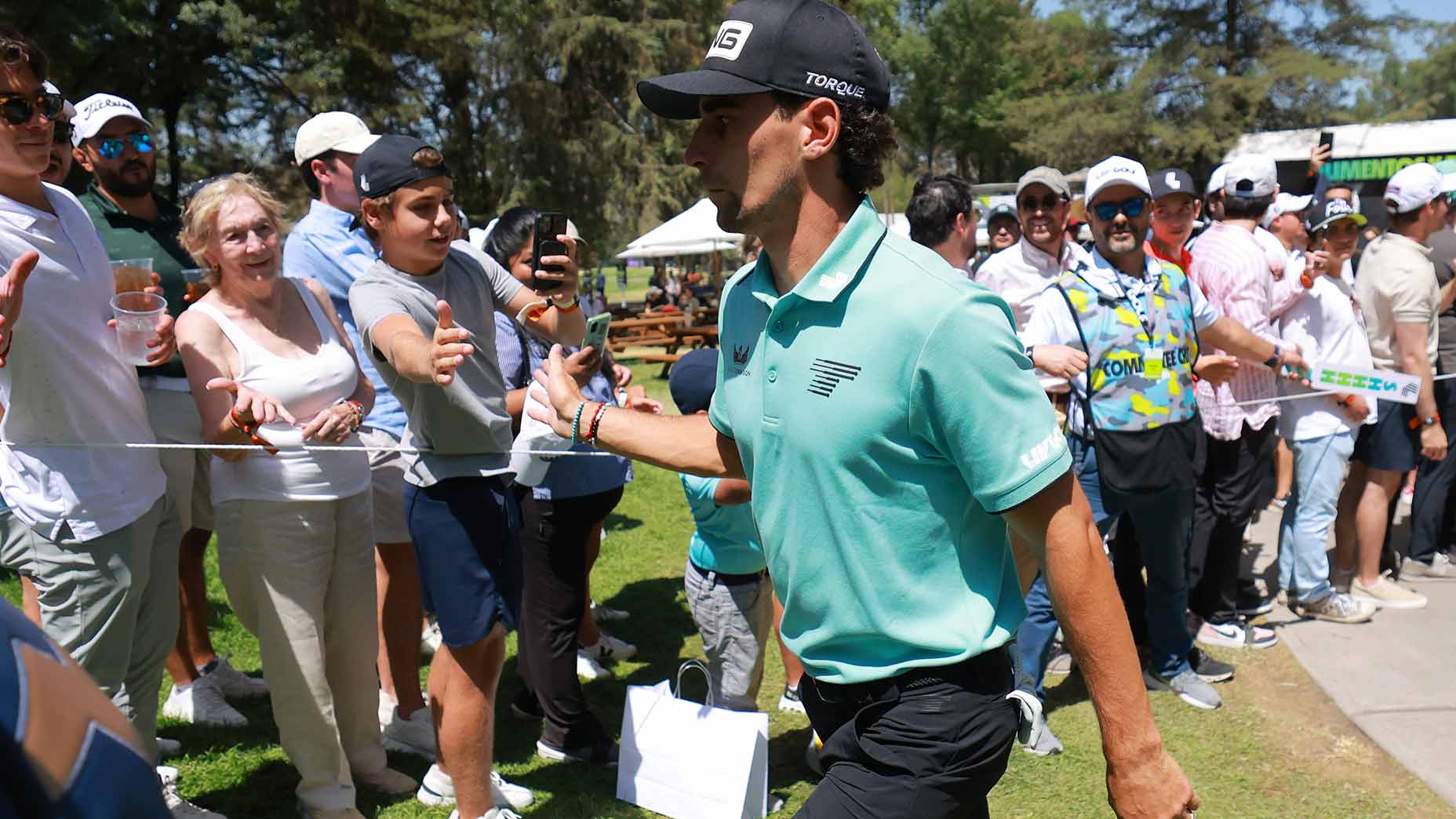 Inside LIV Golf’s exclusive new Mexico City ‘Team Villas’
Inside LIV Golf’s exclusive new Mexico City ‘Team Villas’
This was the first time we EVER saw Tiger Woods play golf
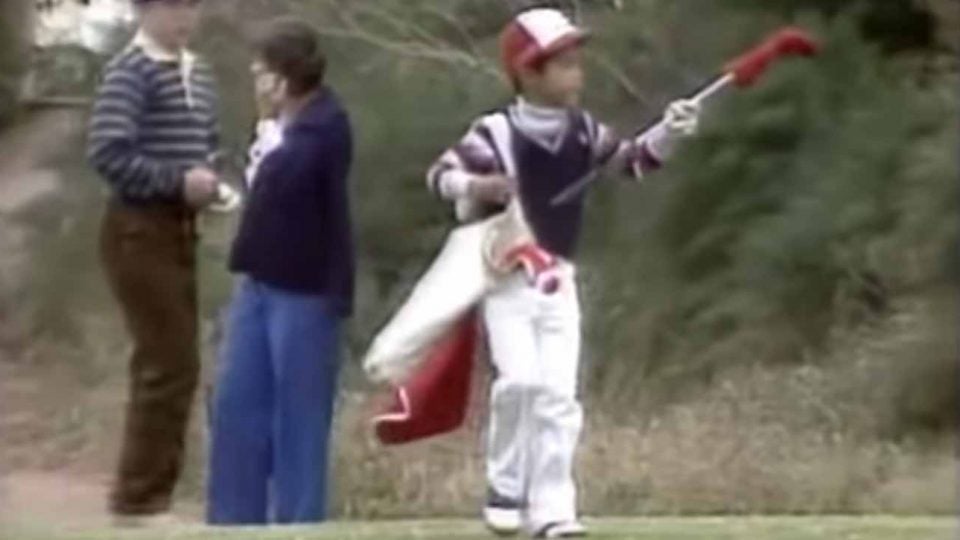
Welcome to the Tiger Woods YouTube Project. Every day, we’re breaking down one clip per year of Woods’ life through the lens of YouTube, looking for insight, entertainment, awe, fun, each time with a guest reviewer. I’m terrifically excited for some of the breakdowns we’ve got in store, and I hope you will be, too.
Chapter 2: The very first time we saw Tiger Woods play golf (1981)
Noted Golf Channel personality Brandel Chamblee, who I can confidently say has spent thousands of hours thinking about Tiger Woods’ golf game, joins us for today’s breakdown. (Chapter 1 is here!)
But first, the video!
In 1981, Tiger Woods, age 5, sat down with (sat on, if we’re being literal) Fran Tarkenton for a segment on the TV show “That’s Incredible.” In the segment, we hear from Tiger, his father Earl and his childhood coach Rudy Durand. We’d already seen 2-year-old Tiger on the Mike Douglas Show, but now we see him playing and practicing on a course for the first time ever, really. This feels like a true peek behind the curtain, and it may be our best chance to see some small element of Woods’ childhood.
DYLAN DETHIER: Brandel, from the very beginning (when Eldrick Tiger Woods is announced on the first tee as the youngest contestant ever) there’s a lot to break down in these five minutes. But before we get into specific moments, I want to just get your surface-level first reactions. How does this video make you feel? What’s your initial takeaway?
BRANDEL CHAMBLEE: My initial takeaway is that we are getting a first look at what is commonly — and in error — referred to as a prodigy, which is to say someone who is, at a young age, endowed with uncommon talents. The word might as well include the qualifying suffix, myth. If one looks at just a few of the so-called prodigies, Mozart, Picasso or Blaise Pascal for instance, they will find commonalities. Namely, that they were exposed to their art at a very young age by fathers who were determined to teach them properly and patiently.
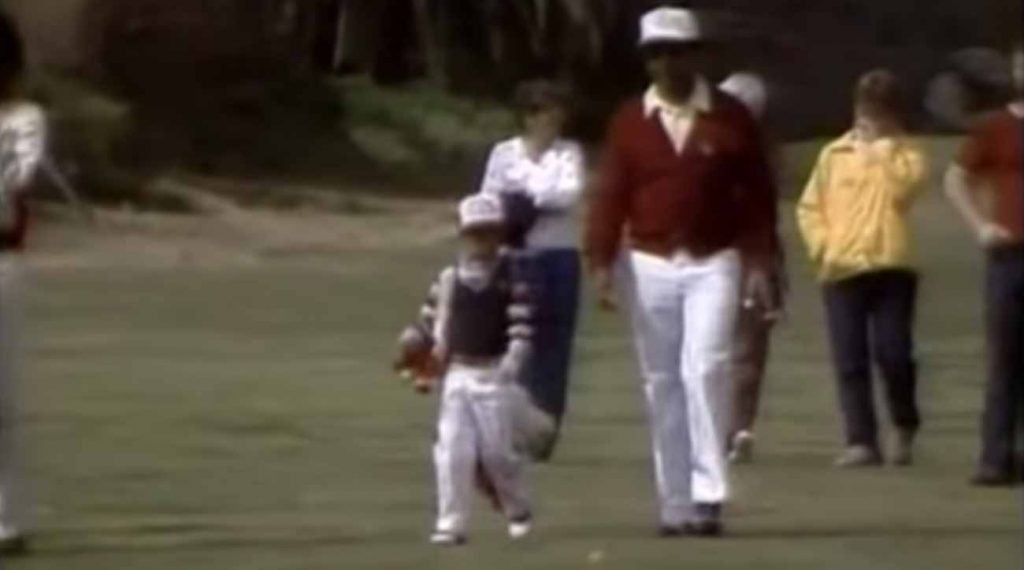
Rather than having a genius for a particular art or insight, each of these legendary figures had a highly influential parent — and they were a captive audience, so to speak. At 2:02 in this video we see Earl Woods swinging a club (a good swing, by the way) in his garage and a 5-year-old Tiger Woods watching, something Tiger had apparently been doing since he was able to sit upright, or before 11 months (based on Earl’s story about 11-month-old Tiger picking up a club and making perfect contact as he hit the ball into the net). We gain more insight into the monstrosity of Tiger’s talent in this clip than we do from all of the commentary that has followed it. At a very young age, Tiger was establishing visual representations of a proper swing, of proper strategy (which we hear at the 50-second mark), and of his future, which we hear at the 4:35 mark.
In this clip we find the essence of genius: deliberate practice of the correct principles at a young age, which allows one to create visual representations that elevate their performance to such a state that the only way we can make sense of it is to call it a “gift.”
DD: One of the reasons I wanted to ask you in particular about this video is because it’s the first time we’ve really seen Tiger Woods play golf. You’re a student of the golf swing — and you’re a student of Tiger’s golf swing. Anything you notice in particular from watching him here? His full swings? His short game?
BC: At the 40-second mark we see Tiger make a golf swing, from the rear view, that is breathtakingly beautiful. He looks like a 5-year-old version of the 2000 Tiger Woods, especially from the top down, when he drops, increases his knee flex and then unweights his right heel and uses the ball of the right foot to push off, rotate and extend. Much like those images of Bobby Jones’ golf swing when he was just a child reveal, the hard work of developing a golf swing was done at a very young age, when Woods was at his most imitative and malleable.
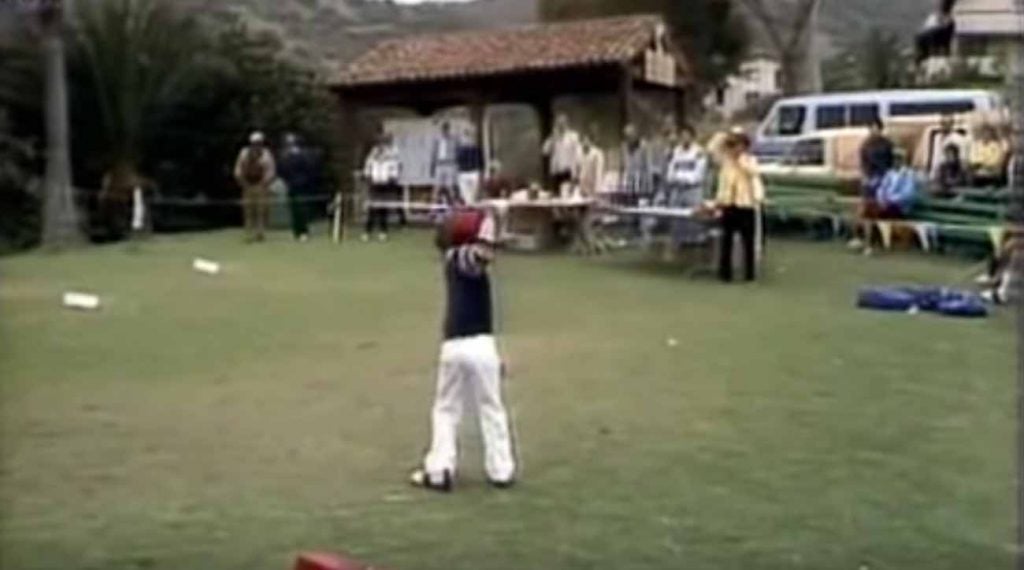
ADVERTISEMENT
DD: I’m struck by watching Earl and Tiger interact. Earl is famously tough on Tiger, but we see such a fun back-and-forth here. It’s so playful. Their consultation (1:06) Tiger jumping into his arms (1:35) the dancing (1:48). Maybe that shouldn’t be surprising, given he’s five years old, but still — I was sort of surprised. Made me smile.
BC: Tiger and Earl’s interactions appears to be born of complete trust. Earl was clearly a very bright man who had somehow navigated the difficulty that most parents face, in that their kids, having heard their admonitions one time too many, have an eye-rolling dismissal of their advice. I love the scene at :50 of Earl kneeling as he talks to Tiger on the course, presumably about golf course strategy, and there isn’t even a hint of Tiger dismissing him.
I think there is even evidence that Earl taught Tiger holistically about golf and what his talent will likely expose him to in the way Tiger, in the opening scene, is sitting on Fran Tarkenton’s lap. Tiger is un-awed by the cameras and by the idea of sitting on the lap of an adult heaping adulation on him, as if his dad had already prepared him for every possible scenario and how he should react.
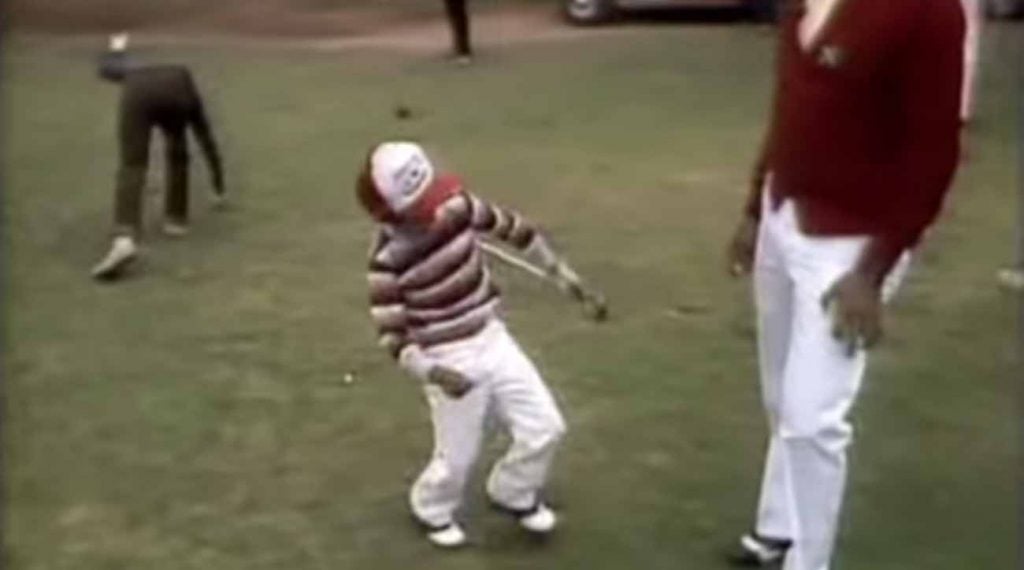
DD: We just get a glimpse, (at 2:02) but what do you think of Earl Woods’ golf swing? Anything that rubbed off on Tiger?
BC: Earl’s swing is quite good, certainly good enough for a young Tiger to have gotten the proper visual representations required to stand up and emulate what he had seen at 11 months old and hit a solid shot.
DD: What’s your favorite moment in the video?
BC: My favorite moment comes at the 2:05 mark, when Tiger is watching Earl hit balls in the garage. Everything that he is as a golfer has its roots in that image, in my view.

DD: What should average golfers learn from watching 5-year-old Tiger?
BC: The average golfer should be reminded that what we are watching is not a “gift.” That would be, at least in my view, somewhat of an insult to the deliberate practice of correct principles that allows one to create visual representations for their great success. “Prodigy,” “savant,” “genius,” “innate ability,” “gifts,” etc. are fun words to use in describing great talent, but really what we are talking about is an incredible ability to work hard to discover the truths in sport, music, art, mathematics or whatever it may be that we are admiring success in.
DD: What do you make of the way Earl talks about Tiger?
BC: It doesn’t matter how many times I hear Earl Woods talk about Tiger in old videos — I am struck by his intelligence and, forgiving the penchant all parents have for hyperbole as it relates to their children, his prescience for predicting unprecedented success.
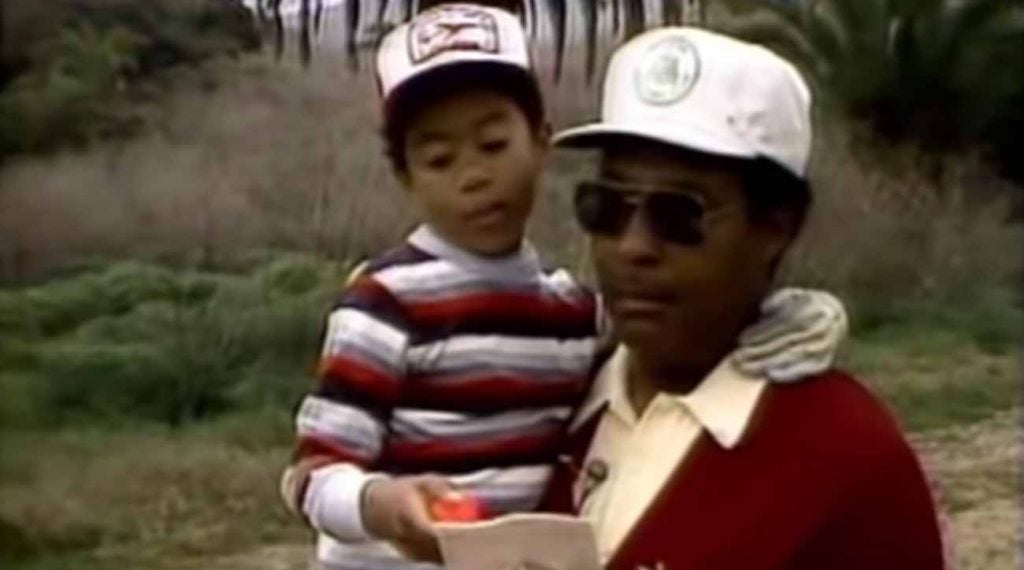
DD: What do we learn, if anything, about Tiger Woods’ life in this video? What insight? Or is the entire exercise ridiculous?
BC: The way Tiger became a talent with almost no precedent or analogue is reminiscent of the way South Korea is producing a disproportionate number of stars in the women’s game. The teaching system in South Korea provides an environment that is not biased towards outcomes, which is to say shots and scores, and so in essence they are recreating the garage scenario by which Tiger Woods created visual representations of the proper swing and then was able to deliberately practice those moves.
It’s not about 10,000 hours, its about creating the right visual representations of the proper moves so that one can then practice for those moves for thousands of hours. We can all learn a lot from the way Tiger Woods learned.
CHAPTER 1 — WHAT TIGER WOODS’ FIRST-EVER TV APPEARANCE (AT AGE 2!) REALLY TAUGHT US
To receive GOLF’s all-new newsletters, subscribe for free here.
ADVERTISEMENT






